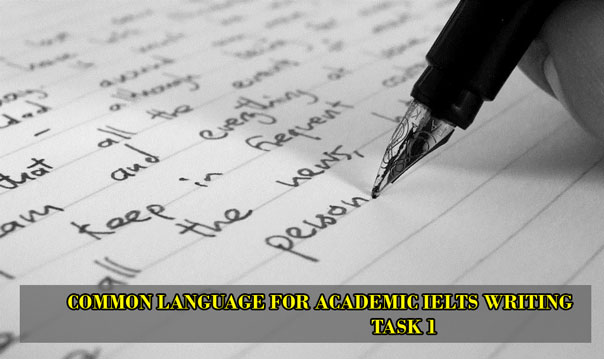IELTS Writing Task 2: Tips and Useful Languages
Choose one of the possible IELTS Writing Part Two tactics below and give your opinion on it and/ or share tips you have heard. Your partner will then give their opinion on what you said. (Not all of them are good ideas!)

- Use one paragraph structure (e.g. introduction/ good things/ bad things/ conclusion) to answer all questions
- Learn model answers off by heart and just change a few sentences to fit the question in the exam
- Underline important words in the question
- Decide on the paragraph structure right away
- Brainstorm before you start writing
- Brainstorm before you decide on the paragraph structure
- Continue brainstorming or rewrite if your ideas seem silly
- Eliminate the silly ideas from your brainstorming
- Write views which you don’t really have
- Make up data to support your arguments
- Make up quotes to support your arguments
- Make up personal experience to support your argument
- Count the exact number of words
- Write as much as you can
- Spend 10 minutes planning
- Add more complex language while you edit
- Insert extra lines with an arrow to improve the structure or reach the minimum number of words
- Use lots of linking phrases (“On the other hand” etc)
- Leave five minutes for editing
- Use basically the same introduction paragraph every time
- Make sure your work is really neat
- Rewrite words that might be difficult to read because of your handwriting etc
- Choose a less obvious way of organising the paragraphs
- Always stick to four paragraphs
- Make sure the paragraphs are similar lengths
- Avoid one sentence paragraphs
- Include a sentence that explains the structure of the essay
Brainstorm useful phrases for giving opinions in the discussion you just had (and IELTS
Writing Part Two):
- Strong opinions:
- Weak opinions:
- Other opinions language:
- Your experience:
- Others opinions and experience:
Compare your ideas with the boxes below:
| Strong opinions | Weak opinions | Other opinions language | |
| I’m a firm believer in… In my honest opinion,… I strongly believe… I really think… To be frank,… Frankly,… I’m convinced that… I’m absolutely certain that… I’m positive that… Without a doubt,… |
With some reservations, I’d say that… There is a lot to be said for both, but if I was asked I’d say… I would imagine that… I would guess that… As far as I know,… |
It is my view that… If you ask me,… Although I can see the other side of the argument,… If you want my opinion, I’d say that… If you ask me,… The way I see it,… I would say that… As far as I’m concerned,… I am of the opinion that… |
|
| Your experience | Others opinions and experience | ||
| In my (personal) experience,… From personal experience, I would say… I have (generally) found that… Experience has shown me that… |
It is commonly thought that… It is widely believed that… There is a common opinion that… Many people say that… The majority of people (who I know) (seem to) think that… I have heard that… |
||
Which phrases are most suitable for IELTS Writing?
Use the same language to discuss the best ways of studying to improve your writing.
- Possible ideas:
- Reading academic papers
- Self-study books on IELTS vocabulary/ IELTS writing/ academic vocabulary/ IELTS grammar/ general grammar
- Looking at model answers
- Learning whole model answers by heart
- Learning fixed phrases
- Learning paragraph structures
- Collecting your typical mistakes
- Doing practice tests, even when you can’t get feedback on your finished writing
- Looking back at your previous writing
- Editing your own writing, even when you can’t double check it with someone
- Online IELTS writing practice
- Learning vocabulary from IELTS readings
Choose one of the ideas and brainstorm advantages and disadvantages of that method.
| Advantages | Disadvantages |
Switching to talking about the other |
| The main advantage… One thing to be said for… One thing in favour of… is… |
The most negative thing about… is… Points against include… One of many disadvantages is… |
On the other hand,… Looking at the other side of the argument,… Switching from the pros to the cons,… |
Để biết thêm thông tin chi tiết vui lòng liên hệ:
DU HỌC UNIGLOBE
10/3 Nguyễn Thị Minh Khai, Phường Đa Kao, Quận 1, TP.HCM
ĐT: (08) 35 173 345 – 35 173 678
Email: info@uniglobe.edu.vn
Website: www.uniglobe.edu.vn






bình luận